One of the ACR’s most powerful assets is its members, including those who bring their expertise, experiences and varied opinions to its volunteer committees. This year, the ACR is seeking new voices to add to the committees and is sending a special invitation to community rheumatologists, whose perspectives about current practices, policies and challenges will help shape the direction of the ACR and the field of rheumatology for years to come.
The Rheumatologist spoke with six community rheumatologists about why they volunteer on ACR committees and what that service has meant to them, professionally and personally:
- Sean Fahey, MD, Piedmont Healthcare, Mooresville, N.C.
—current: ACR Board of Directors
—past: Government Affairs Committee (GAC), Committee on Rheumatologic Care (CORC) and its Insurance Subcommittee (ISC) - Kwas Huston, MD, Kansas City Physician Partners and clinical associate professor of medicine at the University of Missouri, Columbia
—current: ACR Board of Directors
—past: CORC, GAC - Chris Phillips, MD, Paducah Rheumatology, Paducah, Ky.
—current: ISC
—past: COVID-19 Practice & Advocacy Task Force, CORC, CORC liaison to GAC - Virginia Reddy, MD, Rheumatology Associates, Dallas, Texas
—current: Registries & Health Information Technology (RHIT) committee
—past: COVID-19 Practice & Advocacy Task Force, CORC - Marcus Snow, MD, University of Nebraska Medical Center, Omaha
—current: CORC - Angus Worthing, MD, FACP, FACR, Arthritis & Rheumatism Associates, PC, Washington, D.C.
—current: ACR Board of Directors, Board liaison to the Committee on Education, ACR Governance Task Force
—past: CORC, GAC, Affiliate Society Council, Strategic Planning Task Force, MACRA Task Force
The Rheumatologist (TR): ACR members consistently report that volunteering on a committee has been rewarding in many ways. How has your committee work proved beneficial on a professional level?
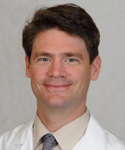
Dr. Worthing
Dr. Worthing: Professionally, my ACR volunteering has helped me improve my medical practice in many ways. As a CORC volunteer, I learned what was going on with new treatments and practice management. ACR volunteering has also taught me a host of leadership skills and tools that I use almost every day as a partner and member of my group’s executive committee. I am extremely grateful for all that.
Dr. Fahey: Volunteering ensures I have access to the best information to run my practice. I have picked up so many helpful hints interacting with fellow volunteer leaders.
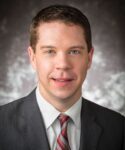
Dr. Snow
Dr. Snow: Professionally, it is a great way to network and collaborate with others you would have never met or otherwise gotten to know. The formal exchange of ideas and the informal discussions that occur during the meetings—and afterward—is something I never considered but really have grown to appreciate.
TR: Can you share any specific examples of professional growth?
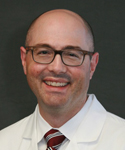
Dr. Huston
Dr. Huston: Getting to know experts from around the country in different areas of practice management has been enormously helpful in developing strategies for our practice. In addition, participation in ACR activities has allowed my own professional development through the acquisition of new skills, such as team building and project management.
Dr. Phillips: Because of my work with the ACR, I have been able to advocate directly on specific payer issues I have seen in my practice. It’s been very useful to have direct access to resources to address payer issues I see in private practice.
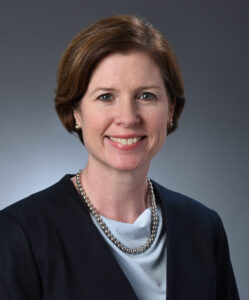
Dr. Reddy
Dr. Reddy: I particularly enjoyed working on ACR position statements while on CORC, including a position statement on prior authorization, the bane of the existence of many rheumatology practices. It was fun to stretch my brain in a different direction, researching the background of prior authorization and writing a position statement to advocate for practical ways to improve and streamline the prior authorization process, to improve access to medications for our patients and to reduce the administrative burden on rheumatology practices.
TR: How has your committee work made a difference to the overall field of rheumatology?
Dr. Worthing: GAC taught me how to advocate in Washington, D.C., for changes that would benefit my practice and my patients—such as postponing International Classification of Diseases coding headaches, gaining a long-overdue boost to evaluation and management reimbursement, and navigating the Medicare Access & CHIP Reauthorization Act of 2015 (MACRA) and Merit-Based Incentive Payment System. And when COVID-19 hit us, I was able to share best practices with others around the country about ways to keep our patients, our clinic staff and ourselves as safe as possible.
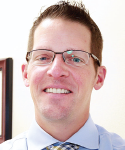
Dr. Phillips
Dr. Phillips: I have seen how ACR advocacy, through ISC as well as CORC and GAC, has been able to help impact payer policies in a favorable manner; how we have been able to help individual practices with payer issues; and how, on a macro level, ACR advocacy has benefited our members concerning federal and state-level legislative efforts.
TR: What have you gained personally from volunteering with the ACR?
Dr. Worthing: After more than 10 years of volunteering for the ACR, I can say that I’ve gotten much more out of my experiences than I’ve put in. I’ve made some of my best friendships in rheumatology, both during high-stakes discussions at meetings and at the fun dinners and nightlife after those meetings. And it’s also wonderful to lean on my ACR friends for advice about practice management issues, patient care questions, and all the aspects of work-life balance everyone has.
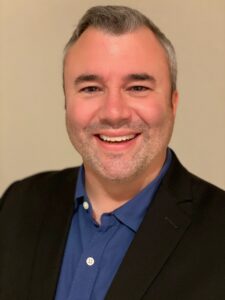
Dr. Fahey
Dr. Fahey: On tough clinic days, volunteering recharges my batteries by making a difference outside of day-to-day practice.
Dr. Reddy: I have particularly enjoyed the opportunity to meet rheumatologists from all over the country and at different points in their careers and to learn about their perspectives on the practice of rheumatology.
Rheumatologists like me, in community practice, sacrifice a lot to volunteer for ACR, because each hour of service could be spent seeing patients and building one’s practice. But in my experience, my practice has gained so much as a direct result of my service that the effort has paid off many times over.—Angus Worthing, MD, FACP, FACR
TR: Given your experiences, why would you encourage others in community practice to serve on an ACR committee?
Dr. Huston: Community rheumatologists should absolutely volunteer for the ACR! I know everyone is very busy and it can be daunting to take on something new. However, it is absolutely worthwhile and time well spent. The people you meet and the friendships, collegiality and knowledge gained will make you grateful for the experience. And at the same time, ACR activities will be strengthened and enhanced by more community rheumatologist participation.
Dr. Reddy: The majority of RHIT committee members are in academic positions and have extensive expertise in research using information technologies, but it is important for RHIT to also have the input of community rheumatologists, who make up the bulk of the practices participating in the Rheumatology Informatics System for Effectiveness (RISE) registry.
Dr. Worthing: Volunteering on an ACR committee can be a start of a leadership journey at ACR and other organizations. Volunteering provides community rheumatologists an inside look into what’s going on at the national level and gives us access to people and relationships that help sustain us and our practice.
TR: Would you like to share any final thoughts about the importance of volunteering for committee work?
Dr. Snow: Volunteering is a way to discuss with and listen to others who have the same issues you have and to learn from their successes and failures. In doing so, you will create a network to make your practice stronger and healthier. In addition, volunteering is a way to give back to our specialty, to our patients and to future rheumatologists.
Dr. Fahey: Volunteering allows networking with colleagues, helps inspire patients to volunteer as well and improves understanding of all the great things the ACR does to help our specialty.
Dr. Reddy: I have certainly gained a much deeper understanding of all the work and advocacy that the ACR does on behalf of all its members, and how much of that work is powered by volunteers. It is a great feeling to know that my volunteer efforts, along with the efforts of so many others, have helped advance the mission of the ACR.
Leslie Mertz, PhD, is a freelance science journalist based in northern Michigan.
Add your voice now.
Nominate yourself or a colleague to one of the 18 standing ACR volunteer committees by June 2, 2021. The committees provide a wide range of opportunities and suit just about any interest. Add your voice.

